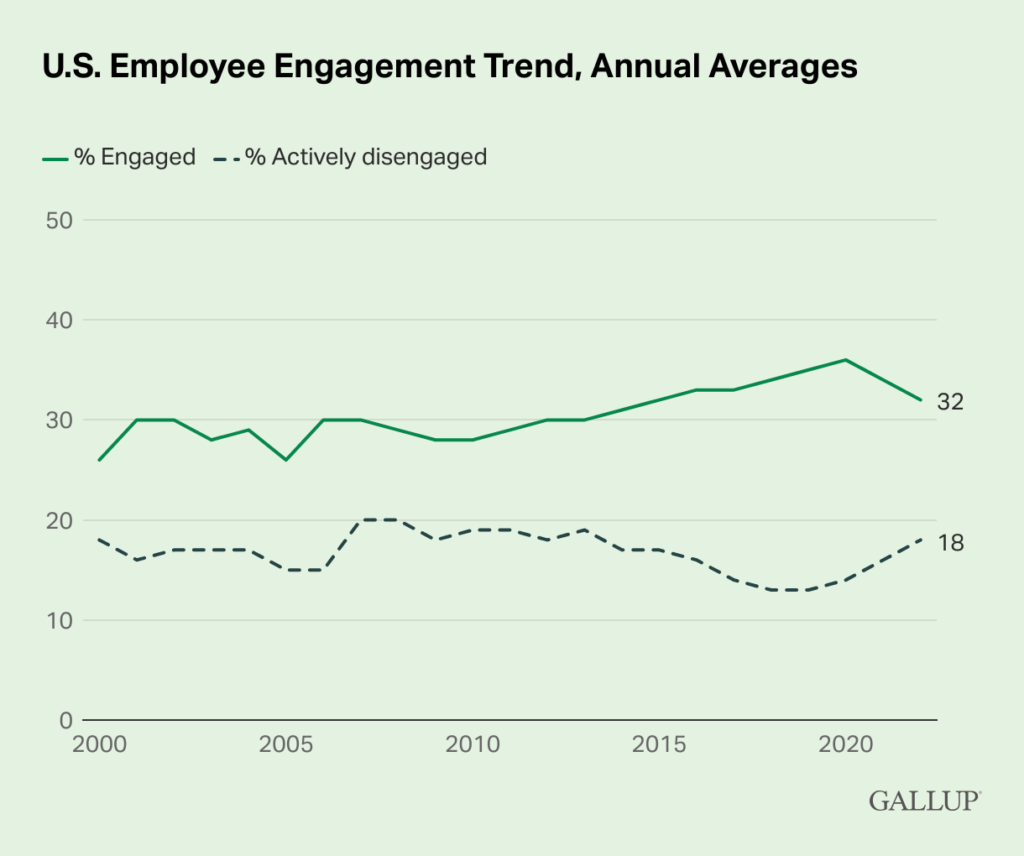Remember those school days when we were asked about our ambitions in life? Dreams of becoming a scientist, astronaut, doctor, cricketer, or engineer filled our youthful aspirations. Most of us in our 20s and 30s likely didn’t end up pursuing those paths. Why is that? The answer is simple. We were captivated by those roles, and people around us ensured we were fantasized about these profiles. This was the first time society had overlapped its thoughts on us.
It’s quite probable that we are doing the same in our professional lives. The world urges us to “Follow the Passion,” and in response, we might be molding some peculiar idea into our passion, undermining our current life and work. Many of us envision traveling the world, running a glamorous, socially successful business, or becoming an influencer as our current ambitions. But what if our future selves told our present selves that these were not our dreams but borrowed from the environment like our school days? We could argue our intellect has grown, but rarely we are able to gauge our emotions and humans are out-and-out emotional creatures.
However, this doesn’t imply that whatever we are currently doing is indispensable and exempt from second thoughts. Who would want to live a life driven by compulsion rather than motivation? The mundane job and unmotivated tasks deserve a barrage of questions within. Being in control of our lives is everyone’s goal. We only have around 4000 weeks on average, our entire lifespan. Why would you want to live this time for somebody else?
So, how do we bridge the gap between the authenticity of our desired life and the drudgery of the current one?
Many people don’t love the work they’re assigned. According to a Gallup survey, at least 50% of the U.S. workforce are Quiet Quitters. They lack motivation to go the extra mile, leading to dissatisfaction with their work.

Feeling unsatisfied can stem from a belief in a different purpose. We remain optimistic about our passion, the arbitrary deluge of thoughts, to ensure we lack in our efforts because we are meant for a greater cause. So how can we determine if the current profile needs to be congealed or if it’s time to pivot?
Analyzing the Present Situation:
Being in the present provides an unambiguous view of everything around us. What we feel while skydiving can be truly experienced at the moment. The same goes for our current work life. Being in the midst of a job could give us an appalling feeling, prompting us to consider more enthralling ideas. For example, Our FD savings might not excite us, but expecting double returns on the stock market makes the option appear lustrous, belittling the confirmed positive yield on FD. Very rarely does our mind focus on the higher risk probability of stock, allowing us to appreciate the present.
We always have complaints related to the present. It doesn’t mean since there is an underlying risk of loss so it’s not good to turn to high-risk high-reward options. However, we frequently overlook the adverse aspects of our future options because we hesitate to lose the alternative which is establishing itself as our route to a satisfied life. We don’t have to lose the option but the key lies in the fact that the alternative simply demands knowledge, enhanced comprehension, and a thorough examination of risks to adequately equip oneself.
Results vs. Process:
Mark Manson, in his best-selling book “The Subtle Art of Not Giving a F*ck,” explains our tendency to fixate on results. Many are inspired by the success stories of a cricketer or an artist but very few get their head around to the associated struggles. We would skip the problem part and very conveniently jump onto the success part. We are in love with the good result and not with the process. However, the process is the only critical part. Results are a function of action. We have to envision the route for future goals. Struggles that will come our way have to be planned, competition needs to be studied, and emotions need to be gauged. That’s the reason most people leave their so-called hard-core passion in between when confronted with adversaries. Process is simply in the actions of present. Process is painful but the ultimate truth is your next goal will also require a grievous process. Question to be asked. Am I ready?
Freedom and Authority:
We all desire authority over our decisions, but without alternatives, we lack freedom and authority. Countries fought for liberty; one’s opinions clashed to remain free from others’ thoughts. Democracy thrives when voters believe they’ve freely chosen their government. Martin Luther King described the absence of freedom as the presence of death.
Money gives us freedom; freedom gives us control, and control makes us feel masters of our lives. Whatever you do presently takes your time from what you desire to do. The idea of freedom might get bruised when confronted with undesirable tasks, prompting an immediate requirement of relief. Check your emotion if it craves freedom from action altogether or if there is a genuine longing for a more deliberate and purposeful course of action.
Giving Meaning to Life:
Agent Smith Clone in “The Matrix Reloaded” says: ” It is purpose that created us, purpose that connects us, purpose that pulls us, that guides us, that drives us; it is purpose that defines us, purpose that binds us.” Lack of purpose is the most significant reason people aren’t at peace wherever they are. We can’t be at our fullest without finding purpose in whatever we do. Following your passion is the best way to give meaning to your life. The trick lies in defining purpose for yourself through studying your actions and behavior and not getting swayed by others’ opinions. Remember what Steve Jobs said.
I’m convinced that the only thing that kept me going was that I loved what I did. You’ve got to find what you love. And that is as true for your work as it is for your lovers. Your work is going to fill a large part of your life, and the only way to be truly satisfied is to do what you believe is great work. And the only way to do great work is to love what you do. If you haven’t found it yet, keep looking. Don’t settle. As with all matters of the heart, you’ll know when you find it. And, like any great relationship, it just gets better and better as the years roll on. So, keep looking until you find it. Don’t settle.”
Steve Jobs’ 2005 Stanford Commencement Address
Embracing Uncertainty:
Ever wondered we’ve thought of our passion through thick and thin, so why didn’t we try it? Because we’re often afraid of being found wrong. If starting a YouTube channel is a dream; try it. Even if the attempt turns out to be a failure, it’s better than clutching it forever without doing nothing. Whether the idea or passion is our true purpose, if it’s our route to freedom, whether we would like the process or not can only be found out through action. If you don’t want to make an effort, probability could be you are afraid of shattering of the castle’s air. Procrastination can originate from lack of vision, indefinite ideas but stagnation could be the result of unwillingness to give up hope. Ask yourself if you are procrastinating or fearing.
The motivation to explore other opportunities may stem from a dissatisfaction with one’s current occupation. Such a sentiment is not unusual, and to genuinely embrace happiness, it is crucial to acknowledge these negative emotions.
The key here is not to discourage someone from making a career change, but sometimes the motivation may not be a passion for a new pursuit but rather a disdain for the current desk job. There exists a distinct dichotomy between the two, and it is essential to recognize it.
According to data from the Bureau of Labor Statistics, approximately 20 percent of small businesses fail within the first year and by the end of the second year, 30 percent of businesses would have failed. Obviously, not all businesses would have failed to distinguish between emotions before pivoting career change but could be because of execution or wrong market entry time. The gist is don’t fall for motivational gurus who would ask you to look down upon yourself, if you haven’t started your entrepreneurship journey. Check the emotions, validate the idea, execute the action plan, and write down your thoughts to be able to start your journey which takes you towards an actionable goal leading to a purposeful and financially stable life.

Good Article
Every weekend i used to pay a quick visit
this site, because i wish for enjoyment, as this this web site conations genuinely
pleasant funny stuff too.
My site: John E. Snyder
hello there and thank you for your information – I
have definitely picked up anything new from right here.
I did however expertise some technical issues using this website, as I experienced to reload the website a lot of
times previous to I could get it to load properly.
I had been wondering if your web hosting is OK? Not that I’m complaining, but slow loading
instances times will very frequently affect your placement in google and can damage your high-quality score if advertising and marketing with Adwords.
Anyway I am adding this RSS to my e-mail and can look out for much more
of your respective exciting content. Ensure that you update this again soon..
Lista escape roomów
Very interesting subject, thank you for posting.Money from blog